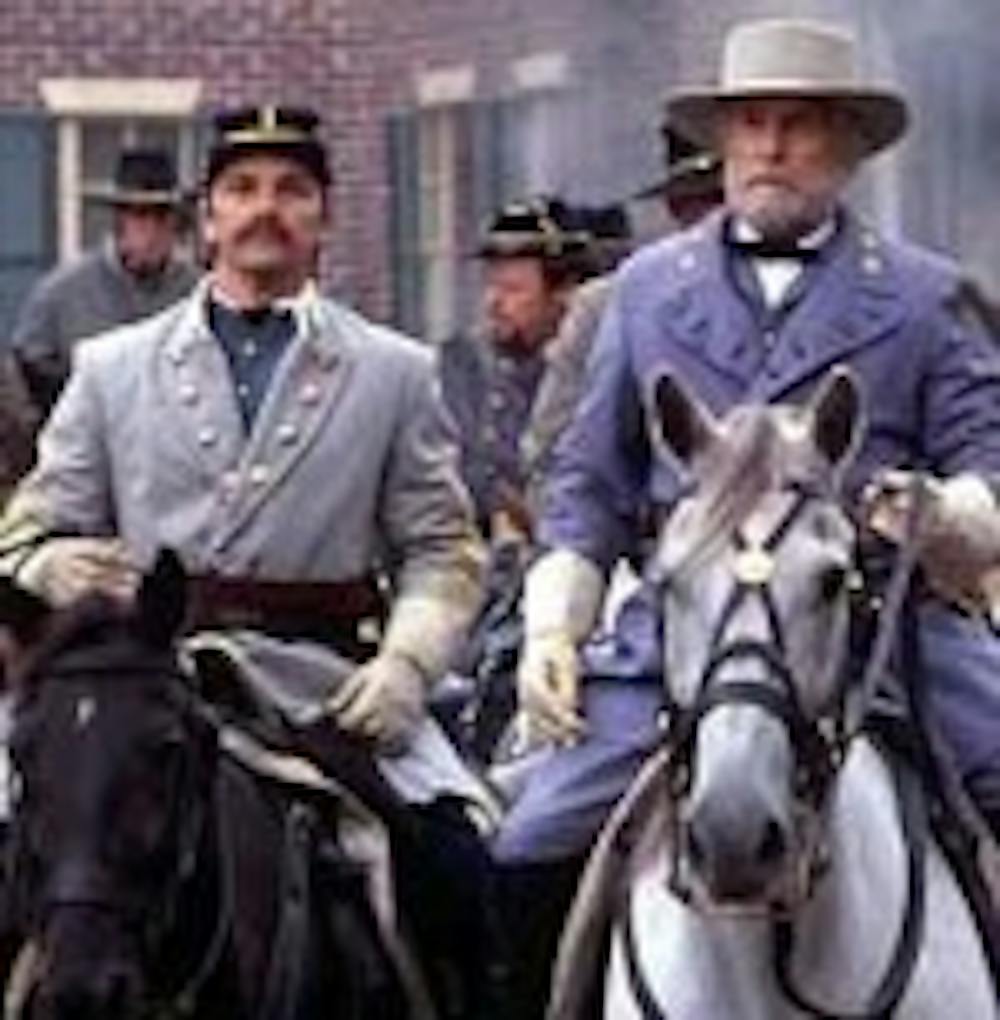"I never thought I'd see the day a president would raise an army against his own country ... I will not lead it," says Robert E. Lee (played by Robert Duvall) as he turns down the opportunity to become a general in the Union Army. "I have no greater duty that to my home." Lee is soon elected to lead a seceded state in the Citizen Army of Virginia.
"Gods and Generals," the prequel to Ron Maxwell's 1993 hit "Gettysburg," is a nearly four-hour ode to the commencement and first half of the American Civil War. Both films were adapted from novels written by Jeff Shaara, causing speculation that there will also be a film for the third and final book in the series, "The Last Full Measure."
Beginning in 1861, the film follows the early months of the Confederate Army's preparation with General Thomas "Stonewall" Jackson (Stephen Lang). Though Maxwell's screenplay, like the novel, follows many characters, Jackson is definitely the central figure.
The first hour of the film is devoted to defending each side's argument for going to war and how the characters follow through with it. The first battle scene begins 45 minutes into the film.
In this scene, Maxwell sticks to the formula that worked so well for him in "Gettysburg." Those who enjoyed quick processions of canon-fire moving one-by-one toward the camera will see them here again. The violence is portrayed in the same way, with little blood actually shown onscreen. There are certainly no "Braveheart" decapitations, nor "Saving Private Ryan" disembowelments.
Despite similarities between "Gettysburg" and "Gods and Generals" in the first scene, the latter is hardly a recreation of its predecessor. The film has a much more personal story, focusing on interactions between soldiers and their families instead of the generals' strategizing. Within the first two hours, officers pine for and write to their wives over a half-dozen times. Throughout the entire film, only four scenes are dedicated to battle planning.
With the exception of Lang, the acting in the film is impeccable. Colonel Lawrence Chamberlain (Jeff Daniels) undergoes a metamorphosis from English professor to able leader, which Daniels handles beautifully. Duvall gives his best performance since his Oscar-nominated role in "The Apostle." Understated but certain, his portrayal of Lee is an improvement from Martin Sheen's in "Gettysburg."
Lang's performance is a bit over-the-top. His melodramatic speeches carry on a bit too long, and it becomes hard to take him seriously. At times he plays the strong-willed commanding officer one would expect of a general nicknamed Stonewall. These moments are all too brief, however. For most of the film, he plays a gushy sap, focusing more on longing for his family than on the war at hand.
In general, Maxwell seems to fulfill his vision. He clearly emphasizes the points he feels are most important, even when these run contrary to popular opinion - for example, he points out that his characters are not fighting for the sole purpose of keeping their slaves, but for the sake of individual states' rights. Maxwell goes so far as to show soldiers cheering for a young, singing couple: "Hoorah! Hoorah! For southern rights, hoorah!"
Demonstrating why the Civil War is known as the last "gentleman's war" is a scene between two fictional characters, Billy Yank and Johnny Reb. Meeting at the middle of the Potomac, they greet each other and exchange coffee and tobacco instead of bullets.
When one acknowledges what a task it must have seemed for the director to create a film that measured up to "Gettysburg," it becomes much easier to appreciate "Gods and Generals." While Maxwell takes a much more personal and heartfelt angle, he's made a film no less epic and no less accurate.





